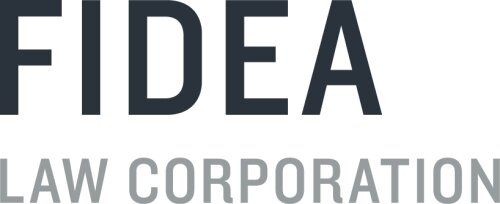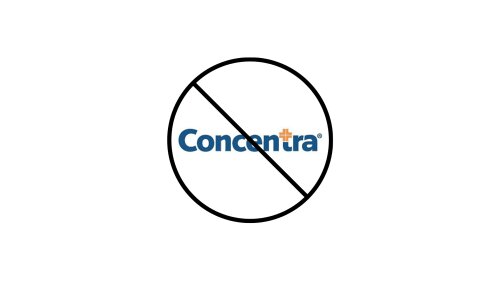Best Employment Rights Lawyers in California
Share your needs with us, get contacted by law firms.
Free. Takes 2 min.
Or refine your search by selecting a city:
List of the best lawyers in California, United States
About Employment Rights Law in California, United States
Employment rights law in California is designed to protect workers from unfair treatment and ensure safe, respectful, and equitable workplaces. California is known for its employee-friendly laws, which provide protections beyond those guaranteed by federal law. These rights cover issues such as wages, hours, discrimination, harassment, workplace safety, leave policies, and wrongful termination. Whether you are a full-time, part-time, or temporary worker, you have legal rights under California law that protect you throughout your employment relationship.
Why You May Need a Lawyer
There are several situations where seeking legal assistance regarding employment rights in California is crucial. Consulting a lawyer can help you understand your legal options, safeguard your rights, and pursue fair treatment or compensation. Common scenarios in which you might need a lawyer include:
- Experiencing discrimination or harassment at work based on race, gender, age, religion, disability, or other protected characteristics
- Facing wrongful termination or retaliation after voicing concerns or reporting illegal practices
- Wage and hour disputes, such as unpaid overtime, meal and rest break violations, or minimum wage issues
- Issues relating to medical, family, or disability leave rights
- Problems with employment contracts, non-compete agreements, or severance packages
- Workplace safety violations or being forced to work in unsafe conditions
- Denial of reasonable accommodations for a disability
- Misclassification of workers as independent contractors instead of employees
A knowledgeable employment lawyer can evaluate your situation, help gather evidence, negotiate on your behalf, and represent you in administrative processes or in court.
Local Laws Overview
California employment law contains some of the strongest worker protections in the United States. Important aspects include:
- Anti-discrimination: The Fair Employment and Housing Act (FEHA) prohibits discrimination, harassment, and retaliation based on characteristics such as race, gender, sexual orientation, religion, disability, and more.
- Wage and Hour Laws: California’s minimum wage is higher than the federal minimum wage and is subject to periodic increases. Special rules apply to overtime pay, meal breaks, and rest breaks. Employers must adhere strictly to these regulations.
- Leave Laws: Employees have rights to certain leaves of absence, including family and medical leave, pregnancy disability leave, and paid sick leave under state and local ordinances.
- Wrongful Termination: California is an “at-will” state, but employers cannot terminate employees for illegal reasons, such as discrimination, retaliation, or whistleblowing.
- Workplace Safety: Employers are required to provide safe and healthy working conditions. Employees can file complaints about unsafe environments without fear of retaliation.
- Employee Classification: California law (such as AB5) presumes workers are employees unless the employer can prove otherwise under strict criteria, offering more protections for many workers.
- Retaliation Protections: Employees are protected from retaliation for exercising rights, such as filing a complaint or participating in workplace investigations.
Frequently Asked Questions
What is at-will employment, and how does it apply in California?
At-will employment means employers can terminate employees at any time for any reason, except for illegal reasons such as discrimination or retaliation. Employees can also resign at any time for any reason.
Is my employer required to give me meal and rest breaks?
Yes, in California, non-exempt employees are generally entitled to a 30-minute unpaid meal break for every five hours worked and a 10-minute paid rest break for every four hours worked.
What counts as workplace discrimination?
Discrimination occurs when an employer treats an employee unfavorably based on protected characteristics such as race, gender, age, sexual orientation, disability, religion, or others covered under California law.
How do I know if I am an employee or an independent contractor?
California uses the ABC test to determine employment status. Most workers are considered employees unless the employer can prove specific criteria establishing independent contractor status.
Can my employer retaliate against me for complaining about workplace issues?
No, it is illegal for employers to retaliate against employees for engaging in protected activities, such as reporting harassment, discrimination, unpaid wages, or unsafe working conditions.
Am I entitled to paid sick leave in California?
Yes, most employees are entitled to paid sick leave under state law, and some cities provide additional benefits. Employers must provide at least 24 hours or three days of paid sick leave per year.
What should I do if I think I was wrongfully terminated?
If you believe your termination was illegal or retaliatory, document the details and contact a lawyer or file a complaint with the appropriate government agency, such as the Department of Fair Employment and Housing.
Are employers required to accommodate disabilities?
Yes, California law requires employers to provide reasonable accommodations for employees with disabilities, unless doing so would cause undue hardship to the business.
How can I recover unpaid wages or overtime?
You may file a wage claim with the California Labor Commissioner’s Office or seek assistance from an employment attorney to recover unpaid wages, overtime, missed meal or rest breaks, and related penalties.
What can I do if I experience harassment at work?
Report the harassment to your employer according to the company’s procedures. If the issue is not resolved, you may file a complaint with the Department of Fair Employment and Housing or the Equal Employment Opportunity Commission, and consider contacting a lawyer.
Additional Resources
If you need help understanding or enforcing your employment rights, the following resources and agencies can assist:
- California Department of Industrial Relations - Division of Labor Standards Enforcement (California Labor Commissioner’s Office)
- California Civil Rights Department (previously Department of Fair Employment and Housing)
- U.S. Equal Employment Opportunity Commission (EEOC)
- California Employment Development Department (EDD)
- Legal Aid at Work
- State Bar of California Lawyer Referral Services
- Local city or county agencies on labor and human rights
Next Steps
If you believe your employment rights have been violated, start by gathering any relevant documents, such as your employment contract, pay stubs, written communications, and notes about the incidents in question. Reviewing your rights and responsibilities on official government websites can provide additional clarity.
Consider speaking with your employer or human resources department to address the issue. If the problem persists or you need guidance, consult an experienced employment law attorney for a case evaluation. You can also contact the state agencies listed above to file a complaint or seek further support. Taking proactive steps early on can help protect your rights and provide the best chance for a positive outcome.
Lawzana helps you find the best lawyers and law firms in California through a curated and pre-screened list of qualified legal professionals. Our platform offers rankings and detailed profiles of attorneys and law firms, allowing you to compare based on practice areas, including Employment Rights, experience, and client feedback.
Each profile includes a description of the firm's areas of practice, client reviews, team members and partners, year of establishment, spoken languages, office locations, contact information, social media presence, and any published articles or resources. Most firms on our platform speak English and are experienced in both local and international legal matters.
Get a quote from top-rated law firms in California, United States — quickly, securely, and without unnecessary hassle.
Disclaimer:
The information provided on this page is for general informational purposes only and does not constitute legal advice. While we strive to ensure the accuracy and relevance of the content, legal information may change over time, and interpretations of the law can vary. You should always consult with a qualified legal professional for advice specific to your situation.
We disclaim all liability for actions taken or not taken based on the content of this page. If you believe any information is incorrect or outdated, please contact us, and we will review and update it where appropriate.
Browse employment rights law firms by city in California
Refine your search by selecting a city.
















